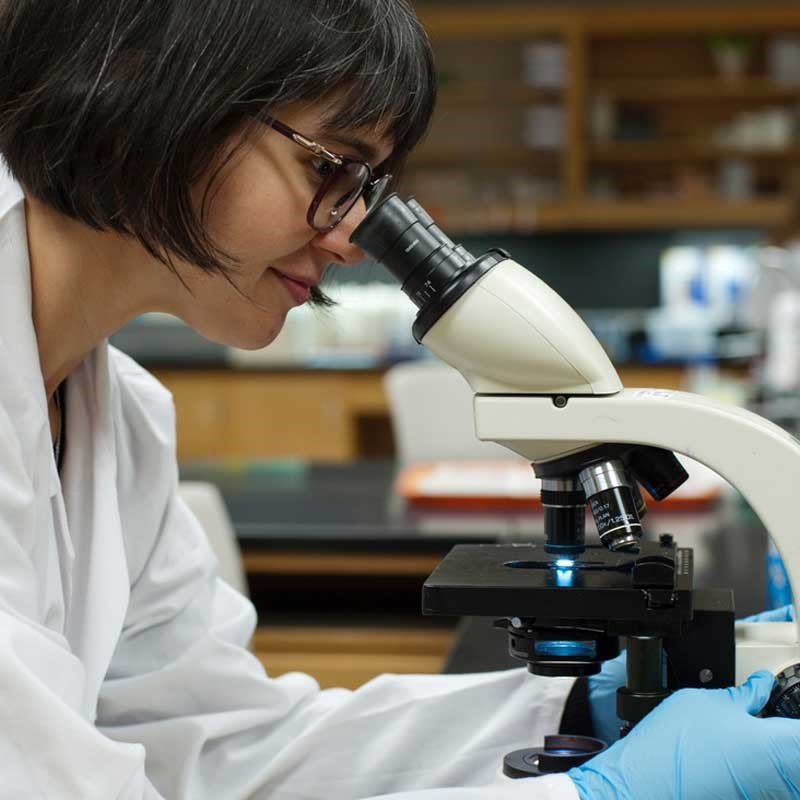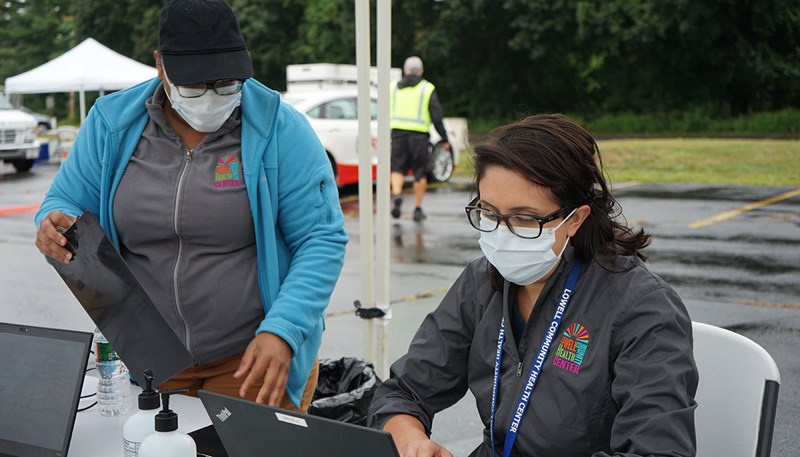You will begin your studies in either the Clinical Science (CS) Option, which also provides the foundational courses necessary for the Medical Laboratory Science (MLS) Option, or the Pre-Medical/Pre-Health (PMPH) Option, if you are interested in a professional medical career. With support from your professional and faculty advisors, you will decide which Option is best for your career interests:
- Clinical Science (CS) Option: The Clinical Science Option provides work-ready skills for careers related to biomedical laboratory research and biotechnology as well as preparation to apply for graduate degrees and certain professional programs (like physician assistant or PA). To reinforce classroom learning, the CS Option offers multiple hands-on laboratory experiences, including opportunities for a co-op experience with one of multiple industry partners.
- Medical Laboratory Science (MLS) Option: Medical Laboratory Scientists are highly skilled and specialized health care professionals who perform diagnostic tests on fluid and tissue samples to help medical teams identify disease and treat patients. You will graduate with approximately 450 hours of intensive experience in clinical diagnostic laboratories, including top Boston hospitals and free-standing clinical/diagnostic laboratories. You can apply to the MLS Option after completion of several requisites while in the Clinical Science Option. Learn more about the two-step admission process. Nearly 100% of MLS graduates obtain employment after graduation.
- Pre-Medical/Pre-Health (PMPH) Option: This option delivers all the education needed for applying to professional medical programs, including veterinary, dental, chiropractic, podiatry, optometry, and pharmacy as well as pre-physician assistant (pre-PA) school. The PMPH Option provides interprofessional education in the basic sciences necessary for medical training, combined with medical/clinical content from many disciplines across the biomedical sciences. It delivers essential content related to human health and disease, medical diagnostics, pharmaceutical sciences, and human nutrition for promoting healthy living. This special combination of basic and applied sciences elevates the PMPH Option at UMass Lowell above other pre-medical programs. A dedicated pre-health advisor will guide you through the application process of any professional programs you wish to apply for.
Courses you will take
The B.S. in Applied Biomedical Sciences begins with a strong core of foundational science courses taken in the first two years, including Anatomy & Physiology, Physiological (or traditional) Chemistry, Basic Clinical Microbiology & Pathology and Clinical Laboratory Theory.
Core courses are followed by many required and optional applied science courses with a clinical/medical, pharmaceutical and nutritional science focus, many of which provide hands-on laboratory experiences. The most notable are Pathophysiology, Clinical Chemistry, Clinical Immunology, Medical Bacteriology, Molecular Pharmacology, Analytical Instrumentation Laboratory, Molecular Diagnostics, Applied Biomedical Genetics and Human Nutrition.
Check out our degree pathways—a suggested four-year schedule—for a possible pathway toward your B.S. in Applied Biomedical Sciences.
View pathways for each option:
Many students engage in collaborative learning with exercise physiology, nursing, nutrition and public health majors through the College’s Interprofessional Education Program (IPE).
Visit the Academic Catalog for a complete course listing and to learn about the Applied Biomedical Sciences minor.
Visit the Academic Catalog for all degree pathways, including those from prior enrollment years.










